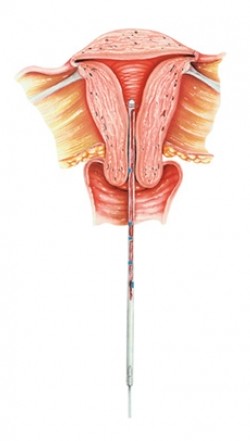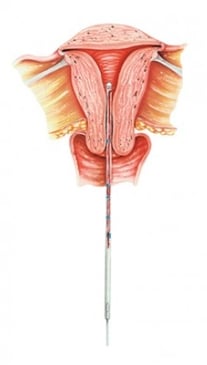
 Failed IVF is a possibility for anyone undertaking IVF — and in most cases, it's impossible to know why failed IVF happens.
Failed IVF is a possibility for anyone undertaking IVF — and in most cases, it's impossible to know why failed IVF happens.
Some fertility clinics have turned to endometrial scratching — also known as endometrial injury, biopsy or trauma — as a treatment to improve success after repeated cases of failed IVF.
Endometrial scratching involves using a Pipelle biopsy (a plastic tube with a plunger when pulled out induces suction that results in sampling of a portion of the uterine lining). It is a cheap and simple procedure that can be conducted without pain medicines during a short clinic visit.
The “trauma” (in the medical sense) from the sampling of the uterine lining (endometrial biopsy) is supposed to release local substances that favor implantation. Endometrial scratching is usually done in the second half (luteal phase) of the cycle prior to the embryo transfer cycle.
A Cochrane review including 14 trials reported moderate quality evidence of a modest increase in live birth or ongoing pregnancy rates in women who underwent endometrial scratching.
It is difficult to tell how prevalent endometrial scratching is as a treatment: Of 100 clinicians from Australia, New Zealand and the U.K. who were surveyed by researchers at the University of Auckland, New Zealand, 83% said they currently offered or recommended endometrial scratching, and 77% of those said they did so prior to or as part of an IVF/ICSI cycle. While these percentages seem high, the survey was sent to 189 fertility clinics but only 68 responded (respondents included 100 clinicians, 26 nurses and 17 embryologists) (Lensen et al. Human Reproduction, pp 1 -4, 2016; Advanced Access published March 22, 2016).
The main limitation of this study is the low response rate of 36%. It is possible that there was a selection bias and only clinics that were enthusiastic about endometrial scratching responded to the survey.
The most common indication, according to the above-cited survey, is recurrent implantation failure (92%). The definition for recurrent implantation failure varies; some clinicians defined it as "more than three good-quality embryos” or “after two failed cycles.” The number of previously transferred embryos needed to meet the definition ranged from 0 to 5, with an average of 2.5.
Most respondents to the above-cited survey agreed that the procedure is beneficial for women with recurrent implantation failure undergoing IVF (73%) and disagreed that the procedure is beneficial for women undergoing their first IVF cycle (53% disagreed).
To see a fertility specialist with a strong success rate diagnosing and treating fertility issues, make an appointment at one of InVia’s four Chicago area fertility clinics.

Dr. Karande is Board Certified in the specialty of Obstetrics and Gynecology as well as the subspecialty of Reproductive Endocrinology and Infertility. He is a Fellow of the American College of Obstetricians and Gynecologists and Member of the American Society for Reproductive Medicine.
Subscribe to our weekly blog digest

Entire Website © 2003 - 2020
Karande and Associates d/b/a InVia
Fertility Specialists

Comments